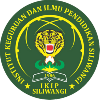STUDENTS’ BELIEFS ABOUT TEACHING AND THE TEACHING PROFESSION IN THE POST-PANDEMIC ERA
Abstract
Beliefs play an important role in teaching and learning because they can impact on teaching behaviors and direct teachers’ decision making about how they will teach in the classroom. Therefore, the researcher attempted to deeply explore students’ beliefs about the teaching and the teaching profession which were classified into four aspects: beliefs about teaching methodology, teachers’ roles, teachers’ challenges, and the teaching profession. The participants were the students who majored in English Literature and they mostly had little teaching experience. The context of exploring the beliefs was in the post-pandemic recovery or when the integration of technology has become the new face of teaching and learning. Through the open questionnaire, it was found that, in the post pandemic era, the teaching methodology should involve offline, online, and blended learning. Second, the roles of teachers were more likely to be facilitators and motivators. Third, the major challenge was in the use of technology itslef, and the teaching professions could be a potential and promosing career and a profession which contested plenty of obstacles.
References
Alcontin, T. N. (2021). Philippines teachers’ beliefs on digital teaching competence in post-pandemic recovery: Still prefer online? Journal of Educational Management and Instruction (JEMIN), 1(2), 71–82. https://doi.org/10.22515/jemin.v1i2.4287
Ali Ansari, A. (2012). Teaching of English to Arab Students: Problems and Remedies. In Educational Research (Vol. 3, Issue 6). http://www.interesjournals.org/ER
Amin, J. N. (n.d.). Redefining the Role of Teachers in the Digital Era. 3(6). http://www.ijip.in
Arifin, S. (2020). Challenges for Teacher Profession in Contemporary Indonesia: A Regulatory Analysis. Lentera Hukum, 7(2), 117–136. https://doi.org/10.19184/ejlh.v7i2.17718
Binod, M. (2015). Innovative ways of English language teaching in rural India through Technology. International Journal of English and Literature, 6(2), 38–44. https://doi.org/10.5897/ijel2014.0686
Borg, M. (2001). Teachers’ beliefs. In ELT Journal, 55, 186-188.
Brown, H. D. (2007). Principles of language learning and teaching. Pearson Longman.
Brown, H. D., & Lee, H. (2015). Teaching by principles: an interactive approach to language pedagogy.
Buehl, M. M., & Fives, H. (2009). Exploring teachers’ beliefs about teaching knowledge: Where does it come from? Does it change? Journal of Experimental Education, 77(4), 367–408. https://doi.org/10.3200/JEXE.77.4.367-408
Davison, C., Goto Butler, Y., Cummins, J., Goh, C. C. M., Hawkins, M., Kirkpatrick, A., University, G., Australia, M. K., Legutke, J., Norton, B., & Zhang, L. J. (n.d.). English Language Education Volume 20 Series Editors. http://www.springer.com/series/11558
Emery, H. (2012). A global study of primary English teachers’ qualifications, training and career development. www.britishcouncil.org
Garton, S., Copland, F., & Burns, A. (2011). Investigating Global Practices in Teaching English to Young Learners. www.britishcouncil.org
Gilakjani, A. P., & Sabouri, N. B. (2017). Teachers’ Beliefs in English Language Teaching and Learning: A Review of the Literature. English Language Teaching, 10(4), 78. https://doi.org/10.5539/elt.v10n4p78
Khan, I. A. (2011). Challenges of teaching/learning English and management. Global Journal of Human social science, 11(8), 69-80.
Ivone, F. M., Jacobs, G. M., & Renandya, W. A. (2020). Far apart, yet close together: Cooperative learning in online education. Studies in English Language and Education, 7(2), 271–289. https://doi.org/10.24815/siele.v7i2.17285
John W. Creswell, & J. David Creswell. (2018). Research design qualitative, quantitative, and mixed methods approaches. SAGE.
Kutálková, K. (2017). Beliefs of Student of Teaching: A Case Study. Procedia - Social and Behavioral Sciences, 237, 1160–1165. https://doi.org/10.1016/j.sbspro.2017.02.172
Licthtman, M. (2006). Qualitative research in education: A user’s guide. SAGE Publications.
Littlewood, W. (2007). Communicative and task-based language teaching in East Asian classrooms. Language Teaching, 40(3), 243–249. https://doi.org/10.1017/S0261444807004363
Marguerite G. Lodico, Dean T. Spaulding, & Katherine H. Voegtle. (2010). Methods in Educational Research: From Theory to Practice (2nd ed.). John Wiley & Sons, Inc.
Nespor, J. (1987). The role of beliefs in the practice of teaching. Journal of Curriculum Studies, 19(4), 317–328. https://doi.org/10.1080/0022027870190403
Nunan, D. (2003). The Impact of English as a Global Language on Educational Policies and Practices in the Asia-Pacific Region. TESOL Quarterly, 37(4), 589. https://doi.org/10.2307/3588214
Nzizeyimana, G., & Osman, R. (n.d.). First-year university student teachers’ beliefs about teaching and the teaching profession: The case of Rwanda.
Pajares, M. F. (1992). Teachers’ Beliefs and Educational Research: Cleaning Up a Messy Construct. Review of Educational Research, 62(3), 307–332. https://doi.org/10.3102/00346543062003307
Putri Kandilla, D., Pebriyani, F., & Sri Meliana, S. (n.d.). Recalling Student Teacher’s Beliefs On English Language Teaching: Evidence From A Pre-Service Teaching Program In Indonesia. Journal of Teaching & Learning English in Multicultural, 2(2).
Richardson, V. (n.d.). The role of attitudes and beliefs in learning to teach Constructivist Pedagogy View project Practical Argument Staff Development View project. https://www.researchgate.net/publication/239666513
Sarica, G. N., & Cavus, N. (2009). New trends in 21st Century English learning. Procedia - Social and Behavioral Sciences, 1(1), 439–445. https://doi.org/10.1016/j.sbspro.2009.01.079
Scardamalia, M., Bransford, J., Kozma, B., & Quellmalz, E. (2012). New assessments and environments for knowledge building. In Assessment and teaching of 21st century skills (Vol. 9789400723245, pp. 231–300). Springer Netherlands. https://doi.org/10.1007/978-94-007-2324-5_5
Vulpe, L., & Pribac, S. (2021). Teachers’ adaptability to online education during COVID-19. Journal of Educational Sciences, 44(2), 63–78. https://doi.org/10.35923/JES.2021.2.05
Xu, L. (2012). The role of teachers’ beliefs in the language teaching-learning process. Theory and Practice in Language Studies, 2(7), 1397–1402. https://doi.org/10.4304/tpls.2.7.1397-1402
Zhou, L., Li, F., Wu, S., & Zhou, M. (2020). “School’s Out, But Class’s On”, The Largest Online Education in the World Today: Taking China’s Practical Exploration During The COVID-19 Epidemic Prevention and Control as an Example. Best Evidence of Chinese Education, 4(2), 501–519. https://doi.org/10.15354/bece.20.ar023
Downloads
Published
Issue
Section
License

This work is licensed under a Creative Commons Attribution-ShareAlike 4.0 International License.











